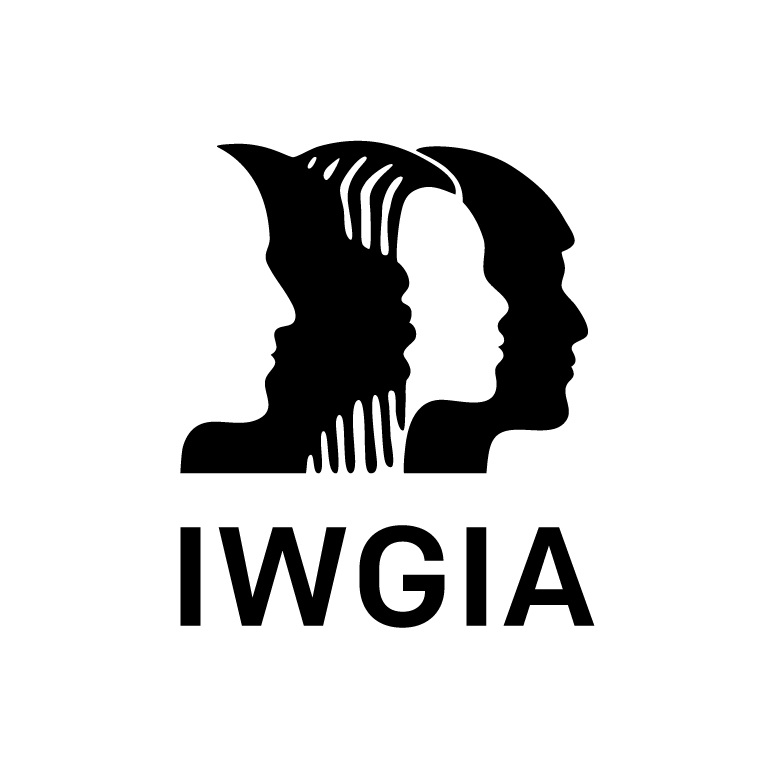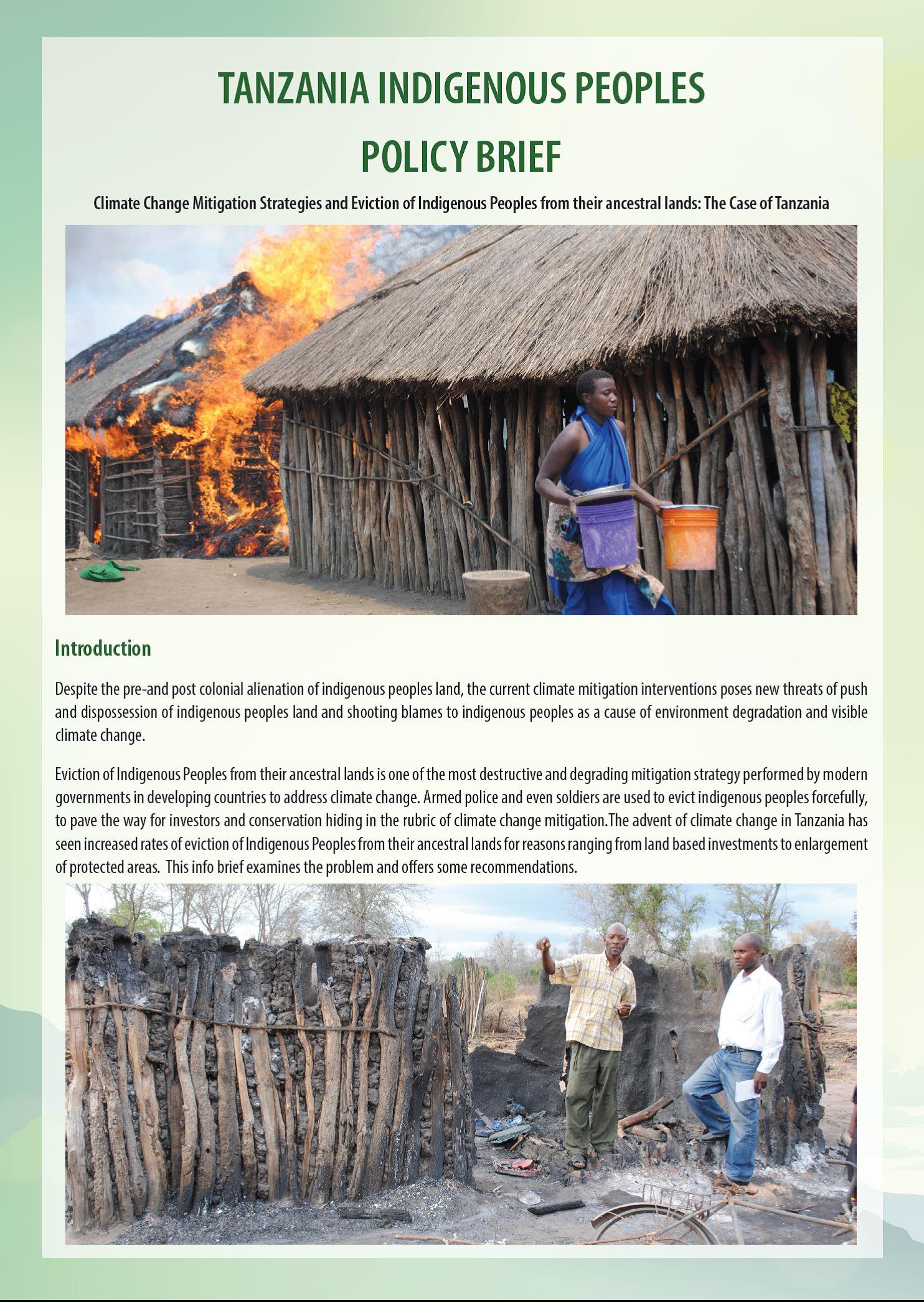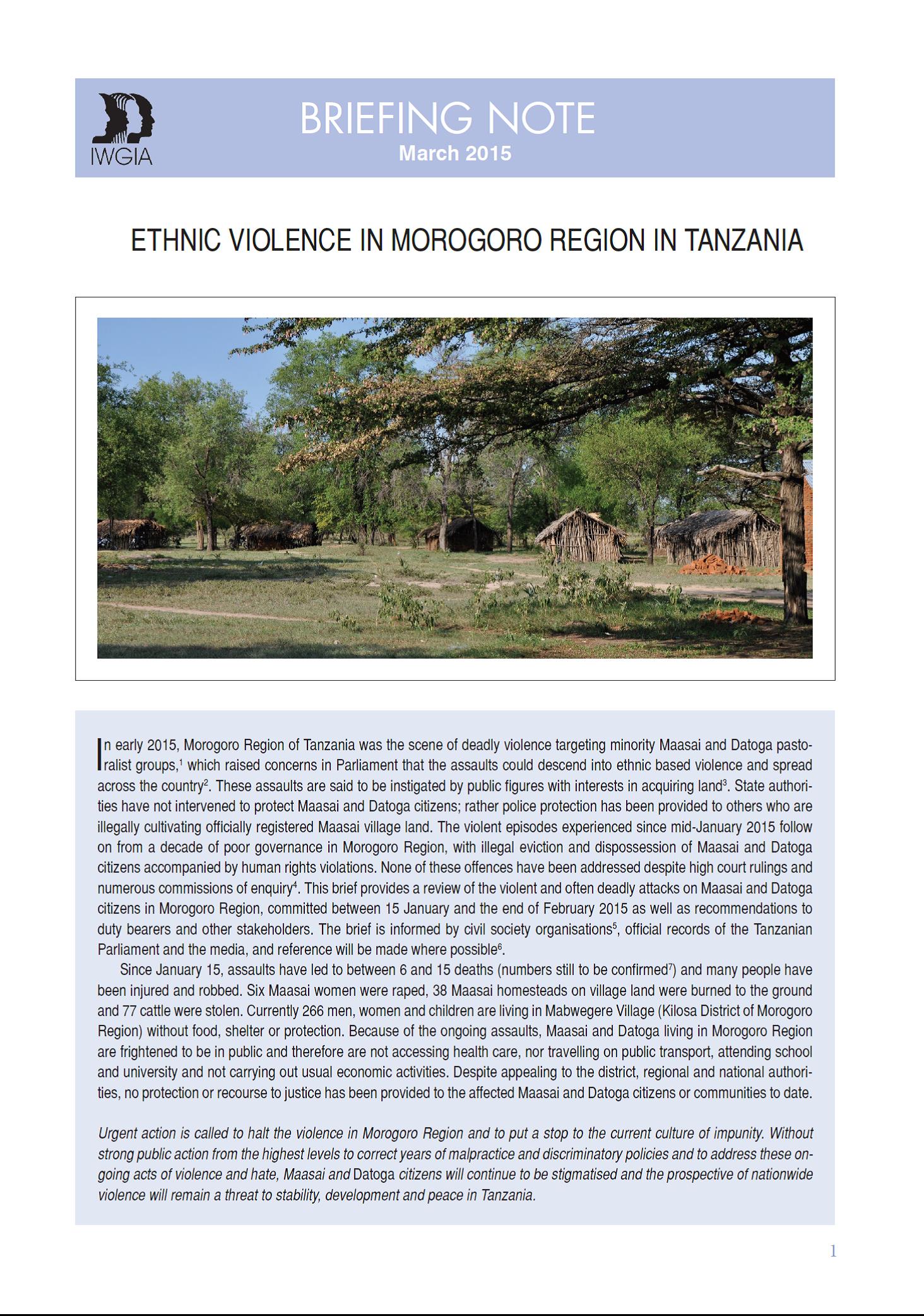Focal point
Location
IWGIA is a non-governmental human rights organisation promoting and defending Indigenous Peoples’ collective and individual rights.
We have supported our partners in this fight for more than 50 years.
We work through a global network of Indigenous Peoples’ organisations and international human rights bodies.
We promote recognition, respect and implementation of Indigenous Peoples’ rights, including the right to self-determination by virtue of which they can freely determine their political status and freely pursue their economic, social and cultural development.
Visit our website for more information and to access all our publications, including our flagship annual book The Indigenous World, a yearly overview of the state of the rights of Indigenous Peoples across individual countries and through various international mechanisms and processes.
Resources
Displaying 31 - 35 of 59Climate Change Mitigation strategies and evictions of indigenous peoples from their ancestral land.
Eviction of Indigenous Peoples from their ancestral lands is one of the most destructive and degrading mitigation strategy performed by modern governments in developing countries to address climate change. Armed police and soldiers are used to forcefully evict indigenous peoples to pave the way for investors and conservation in the name of climate change mitigation.
Climate Change Mitigation strategies and evictions of indigenous peoples from their ancestral land.
Eviction of Indigenous Peoples from their ancestral lands is one of the most destructive and degrading mitigation strategy performed by modern governments in developing countries to address climate change. Armed police and soldiers are used to forcefully evict indigenous peoples to pave the way for investors and conservation in the name of climate change mitigation.
Climate Change Mitigation strategies and evictions of indigenous peoples from their ancestral land.
Eviction of Indigenous Peoples from their ancestral lands is one of the most destructive and degrading mitigation strategy performed by modern governments in developing countries to address climate change. Armed police and soldiers are used to forcefully evict indigenous peoples to pave the way for investors and conservation in the name of climate change mitigation.
Defensoras y Defensores de Derechos Humanos en el Chaco Paraguayo: La lucha por la tierra
Este libro es una secuencia de relatos de casos cargados de emotividad, empatía e identificación con los defensores y las defensoras del derecho a la tierra. Este trabajo es una denuncia política insistente sobre la desigualdad estructural.
Ceñido a la descripción y ejemplificación de hechos graves, se puede ver en el presente un indudable patrón de respuesta del Estado y sus instituciones, sesgado a favor de los intereses de latifundistas y terratenientes y represivo hacia aquellos defensores y defensoras.
Ethnic Violence in Morogoro Region in Tanzania
In early 2015, Maasai and Datoga citizens living in the Morogoro region of Tanzania were victims of deadly, ethnic violence. According to reports from local media, the assaults were instigated by public figures interested in acquiring land, and state authorities have not intervened to protect Maasai citizens. Police protection has instead been given to others who are illegally cultivating officially registered Maasai land.





